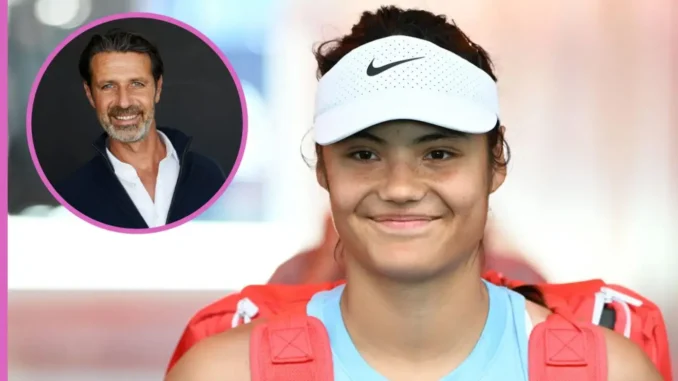
Emma Raducanu’s journey on the tennis court has always been a captivating blend of raw talent and fearless ambition, but her latest chapter at the Miami Open has brought fresh scrutiny to her high-stakes approach. The 22-year-old Brit, a former US Open champion, crashed out in the third round of the tournament this week, falling 6-3, 6-4 to Ukraine’s Anhelina Kalinina. While the defeat marked an abrupt end to her campaign, it also reignited a conversation about her playing style—one that renowned coach Patrick Mouratoglou describes as inherently daring. “Emma Raducanu takes a risk every time she goes on court,” he observed, a statement that encapsulates both her brilliance and her vulnerability.
Raducanu’s Miami run began with promise. After a rollercoaster 2024 marred by injuries and inconsistent form, she arrived in Florida ranked No. 112, a shadow of the top-10 player she once was. Yet, her opening matches hinted at a resurgence. She dispatched qualifier Anna Bondar and then stunned ninth seed Daria Kasatkina in a three-set thriller, showcasing the aggressive shot-making that once propelled her to Grand Slam glory. Against Kasatkina, her boldness shone through—25 winners, including a flurry of forehands that left the Russian reeling. “I felt like I was playing with freedom again,” Raducanu said afterward, a rare smile breaking through her typically reserved demeanor. For a moment, it seemed the tennis world might witness the return of the fearless teenager who captivated Flushing Meadows in 2021.
But the third round told a different story. Facing Kalinina, a steady counterpuncher ranked No. 47, Raducanu’s high-risk strategy faltered. She struck 18 winners but was undone by 27 unforced errors, her ambition outpacing her execution. “It’s frustrating when you know you can play better,” she admitted post-match, her voice tinged with disappointment. Mouratoglou, speaking broadly about her game, pointed to this very dynamic: “She plays with no fear, but that fearlessness comes with a cost. It’s what makes her special, but it also makes her unpredictable.” For every audacious crosscourt winner, there’s a potential misfire—a tightrope walk that defines her career.
Mouratoglou, a coaching titan who has guided the likes of Serena Williams, sees Raducanu’s approach as a double-edged sword. He argues that the greatest players marry technical prowess with unshakable mental fortitude, a balance Raducanu is still chasing. “The true greats have that perfect mix,” he explained, drawing from decades of experience. “Talent alone won’t carry you over the line—you need to control the mental battle.” Raducanu’s willingness to swing for the fences, while electrifying, often leaves her exposed, especially against opponents who thrive on consistency. Kalinina, with her patient rallying, turned Raducanu’s aggression into a liability, forcing errors at critical junctures.
The Miami loss wasn’t just a tactical misstep—it was a microcosm of Raducanu’s broader struggles. Since her fairytale US Open triumph at 18, she’s grappled with the weight of expectation, a revolving door of coaches, and a body that’s betrayed her at key moments. A wrist injury sidelined her for much of last year, dropping her ranking and testing her resolve. “I’ve had to rebuild everything,” she said earlier this month, reflecting on the physical and emotional toll. Yet, her decision to keep pushing the boundaries of her game—rather than adopting a safer, more conservative style—speaks to a mindset that refuses to conform. “She’s not afraid to lose,” Mouratoglou noted, a trait he believes could one day propel her back to the top, provided she refines it.
Off the court, Raducanu’s Miami exit coincided with a separate drama—a chilling echo of a security scare faced by Iga Swiatek days earlier. During a practice session, a heckler taunted her with personal jabs, prompting organizers to tighten her protection. While she declined to dwell on the incident—“I’m just focused on the tennis,” she brushed off—it added another layer of complexity to her week. The tennis world, still reeling from similar incidents involving other players, is grappling with how to shield its stars from such intrusions, a challenge that’s grown more pressing in the social media age.
As Raducanu looks ahead, her next stop is a WTA 250 event in Charleston, a deliberate choice to build momentum on clay. “I need matches,” she said, acknowledging the gap between her potential and her current form. Mouratoglou’s assessment lingers: her risk-taking is her signature, but mastering it could be her salvation. For now, each match remains a gamble—a dazzling, unpredictable dance between greatness and collapse. Whether she soars or stumbles, one thing is clear: Emma Raducanu’s court is never dull, and the tennis world can’t look away.
Leave a Reply